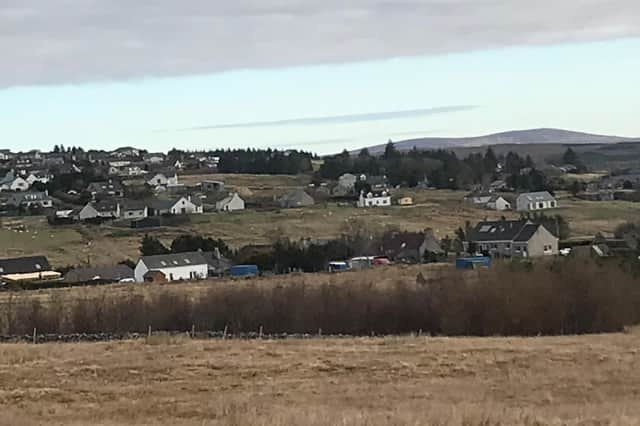“Double-whammy” for isles in energy price hike


The Gazette has seen correspondence circulating in housing circles which reflects fears that excluding gas and oil from heating upgrades, which forms part of the agreement, will have major implications for island consumers.
This issue threatens a “double whammy” at a time electricity prices are about to rocket. Fuel poverty is already disproportionately widespread in the islands due to dependence on electricity which is much more expensive than mains gas.
Advertisement
Hide AdAdvertisement
Hide AdUrgent clarification is being sought on whether there will be exemptions from the SNP-Green pact in order to allow the Warmer Homes programme to proceed on the basis of actual housing conditions and energy supply in rural communities.
Amidst a flurry of anxious correspondence, one housing official in an island location wrote to colleagues: “This is blatant (unintended but real) discrimination against the most vulnerable and needy in remote rural locations - an example of the worst kind of sound bite politicking with no thoughts of the consequences.
“Clearly there needs to be a zero carbon transition but this is not the wisest way - to choose to add additional jeopardy to a community of needy households still recovering from Covid.“The reality of this would have to be a huge acceleration of fabric measures, an improvement to the heat pump supply chain and a significant increase in the financial thresholds of Warmer Home Scotland - all applied instantly.“We know in practice how hard it can be to persuade the most vulnerable households to engage positively for a simple heating upgrade - to expect them to engage with an untried and untested and rushed heating transition just isn’t fair.“In reality it will force vulnerable households to abandon the heating programme safety net and seek their own remedy…. we should all seek to influence a more gentle introduction to this policy”.
Comhairle nan Eilean Siar is seeking urgent clarification of what the new policy will mean and whether there will be exemptions for rural areas. Otherwise it is feared existing programmes will grind to a halt.
Advertisement
Hide AdAdvertisement
Hide AdMeanwhile, chair of the Highlands & Islands Housing Associations Affordable Warmth Group, Di Alexander, warned against the extreme consequences of electricity price hikes in areas not connected to mains gas.
In a recent speech, Mr Alexander spelt out the reality of this differential: “Ofgem, the official gas and electricity price regulator, tells us that the average ‘medium consumption’ UK household uses about 15,000 units of energy a year, based on a 80:20 split between mains gas and electricity, respectively.
“The maths tells the story: our urban friends can buy their 15,000 units (12,000 gas and 3,000 electricity) for £925 a year, while their country cousins will need to shell out between £2,025 and £2,400 plus for the same level of domestic energy.”
He said most the “electricity-dependent households only consume about half the national average because they simply can’t afford to spend more than about £20 a week on domestic energy bills”.